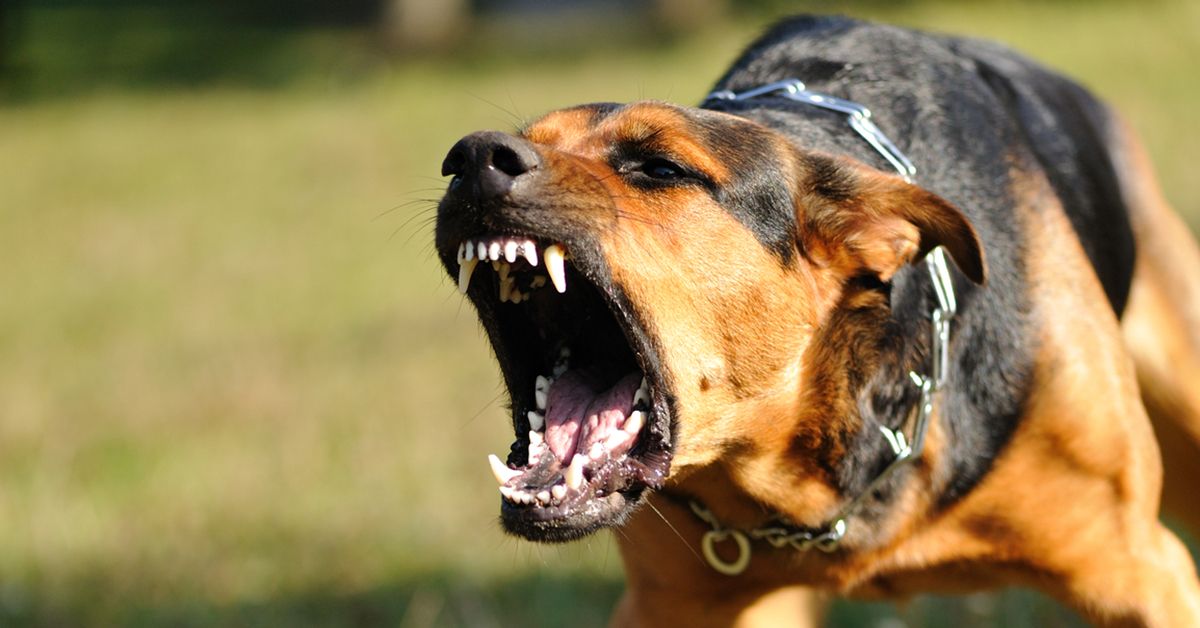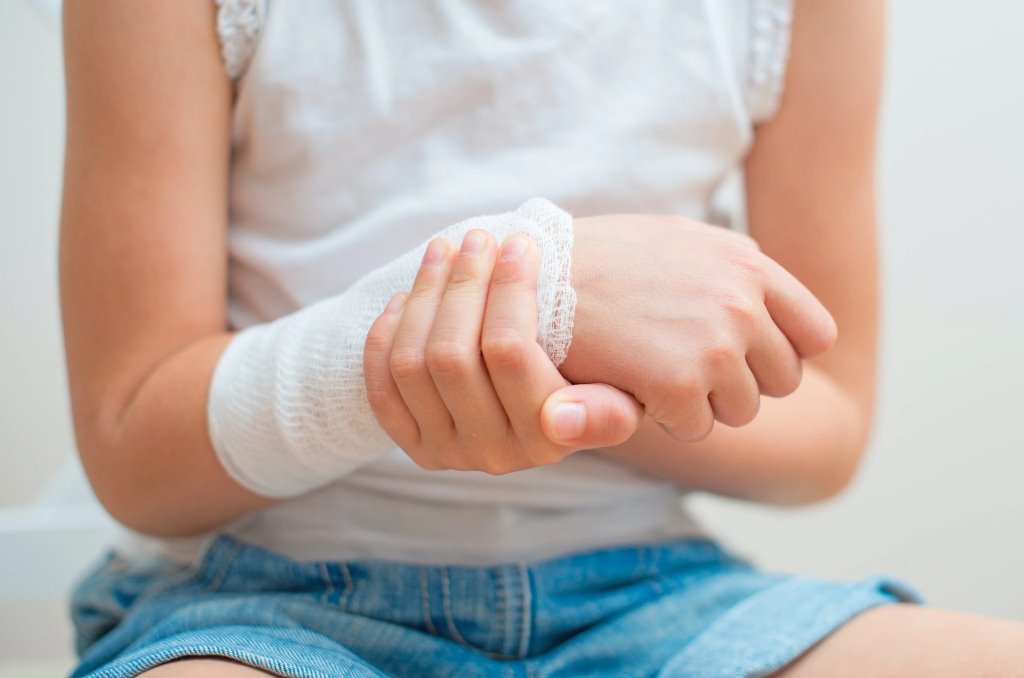Animal bites and scratches that break the skin deserve careful attention, even when they look small or harmless at first. The mouth of an animal carries bacteria, and when teeth or claws puncture the skin, those bacteria can be pushed deep into the tissue. Some wounds heal without complications, but others can become infected, require stitches, or lead to more serious problems if they aren’t treated properly.
In rare cases, bites from wild animals can expose a person to rabies, a viral infection that affects the nervous system and can be fatal if left untreated. In the United States, most rabies cases are linked to wild animals such as bats, raccoons, skunks, and foxes. These animals can also pass the virus to domestic pets like cats and dogs, which is why vaccination status and animal behavior matter so much after a bite.
Knowing what to do immediately after an animal bite can reduce the risk of infection, limit complications, and help doctors decide whether further treatment is needed.
What to Do If You’re Bitten by an Animal
The first few minutes after an animal bite are important. Quick, simple actions can significantly lower the chance of infection and help control bleeding.
Start by washing the bite area thoroughly with soap and clean running water. This helps remove dirt, saliva, and bacteria that may have entered the wound. If the bite is bleeding, apply steady pressure using sterile gauze or a clean cloth until the bleeding slows or stops.
Once bleeding is under control, apply a thin layer of antibiotic ointment to the area. This can help prevent bacteria from multiplying in the wound. Afterward, cover the bite with a clean bandage or sterile gauze to protect it from further contamination.
If the bite is painful, over-the-counter pain relievers such as acetaminophen or ibuprofen can help manage discomfort. These medications also reduce inflammation, which may ease swelling around the wound. Keep an eye on the bite over the next several hours and days, watching for changes in color, warmth, or pain.
Get Medical Care If:
Some animal bites require evaluation by a healthcare professional, even if first aid has already been given. Medical care is especially important when the risk of infection or rabies exposure is higher.
Seek medical care if the bite came from a wild or stray animal, a pet that is not up to date on rabies vaccinations, or an animal that was behaving unusually. Any bite that breaks the skin should be taken seriously, particularly if it involves sensitive areas such as the face, head, neck, hands, feet, or areas near a joint, where damage can affect movement or healing.
You should also contact a doctor if the bite or scratch becomes increasingly red, warm, swollen, or painful over time. These changes can signal the early stages of infection. Medical care is also important if a child is behind on routine vaccinations or has not had a tetanus shot within the past five years.
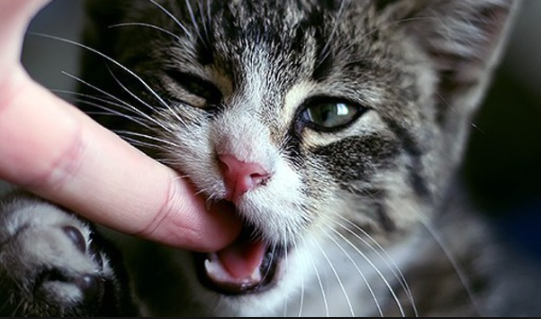
If medical treatment is needed, having certain details ready can be very helpful. This includes information about the type of animal involved, the date of its last rabies vaccination if known, and any unusual behavior the animal showed before or after the bite. Knowing where the animal is located, whether it was wild or stray, and whether it was captured by animal control can assist public health officials if rabies exposure is a concern.
It’s also important to provide your child’s immunization history and a list of any medications they are allergic to. This information allows healthcare providers to make faster, safer decisions about treatment.
Bites from certain animals carry higher risks than others, and understanding those differences can help explain why doctors may be more cautious in some cases. Cat bites, for example, are more likely to become infected than many dog bites. Cat teeth are thin and sharp, which allows them to create deep puncture wounds that close quickly at the surface. This traps bacteria under the skin, where it can multiply unnoticed. Cats also commonly carry bacteria that can cause cat scratch disease, which may lead to swollen lymph nodes, fever, and prolonged discomfort.
Rabies is another concern that cannot be ignored. This viral infection is carried most often by wild animals such as bats, coyotes, foxes, raccoons, and skunks. These animals can transmit rabies to domestic pets, including cats, dogs, and livestock. Rabies attacks the nervous system and, once symptoms appear, it is almost always fatal. The critical point is timing. When rabies exposure is identified early, vaccination can prevent the disease entirely. That’s why prompt medical evaluation after certain bites is so important.
Signs of Infection
Even a bite that looks minor at first can become infected. Infections don’t always develop immediately, and symptoms may appear hours or even days after the injury. Paying close attention to the wound during the healing process is essential.
Contact your doctor right away if you notice swelling or redness spreading around the bite area, especially if the skin feels warm to the touch. Increasing pain after the first 24 hours is another warning sign that bacteria may be growing in the wound. Drainage, pus, or fluid coming from the bite is also a clear sign of infection.
Other symptoms may affect the body more generally. Red streaks extending outward from the wound can indicate that the infection is spreading through the lymphatic system. Swollen glands near the bite, fever, unusual tiredness, night sweats, or shaking chills all suggest that the infection may be moving beyond the skin and needs medical attention.
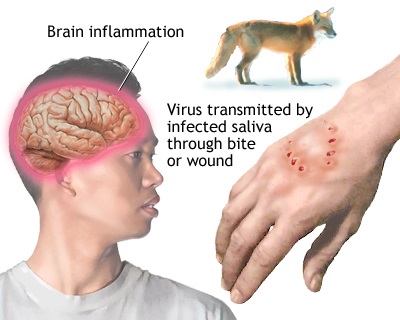
Treatment Options
Seeking prompt treatment after an animal bite greatly reduces the chance of serious infection or long-term damage. During a medical visit, the wound will be carefully examined, and you’ll be asked detailed questions about how the bite occurred. Describing the animal involved, its behavior, and the circumstances of the bite helps healthcare providers assess the risk of rabies and other complications.
Your immunization history will also be reviewed, especially your tetanus status. Deep or large wounds often require thorough cleaning and careful inspection. In some cases, imaging tests such as X-rays are used to make sure no tooth fragments remain in the wound, which could interfere with healing or cause infection.
Treatment may include cleaning the wound with special medical solutions, removing damaged or dead tissue, and checking for injuries to nerves, tendons, or bones. Doctors will look closely for signs of infection and decide whether stitches or sutures are needed to close the wound safely. Antibiotics may be prescribed to prevent or treat infection, and tetanus boosters or rabies vaccines may be given when appropriate. For severe injuries involving joints, muscles, or significant tissue damage, a referral to a plastic surgeon or orthopedic specialist may be necessary.
Preventing Animal Bites
Preventing animal bites starts with awareness, education, and consistent safety habits, especially around children and pets. Many bites happen during everyday interactions when an animal feels threatened, startled, or overstimulated. Teaching children how to behave around animals can greatly reduce the risk of injury.
Children should be taught to be gentle with pets and to avoid sudden movements or rough play. Putting their face close to an animal’s face should be discouraged, even with familiar pets, as animals may react unpredictably. Pets should always be left alone while eating, sleeping, or caring for their young, since these situations can trigger defensive behavior.
It’s also important to teach children to stay away from animals that are fighting or acting aggressively and to always ask an adult before approaching someone else’s pet. Wild animals should be avoided entirely, regardless of how calm or friendly they may appear. Even animals that seem injured or harmless can bite when frightened.
Choosing the right family pet also plays a role in prevention. Families should take time to select animals known for stable temperaments and comfort around children. Pets that show aggression or extreme anxiety may not be a good fit for households with young kids.
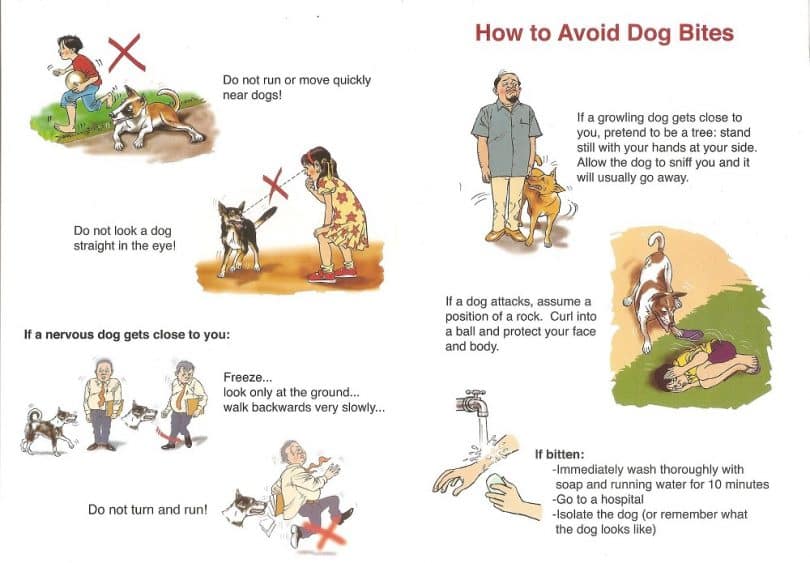
Keeping both people and pets safe requires ongoing attention. Pets should have their vaccinations kept up to date, including rabies shots. Young children should never be left alone with animals, even trusted family pets. Attempting to break up fighting animals can lead to serious bites and should be avoided.
In public spaces, pets should be kept on a leash to prevent unexpected encounters. Avoid contact with animals that appear sick or injured, and never approach or play with wild animals. Pets should be supervised to ensure they don’t interact with wildlife, and any stray or wild animals should be reported to local animal control services.
Animal bites are often preventable. With proper supervision, education, and responsible pet care, the risk of injury can be significantly reduced while keeping both families and animals safer.

